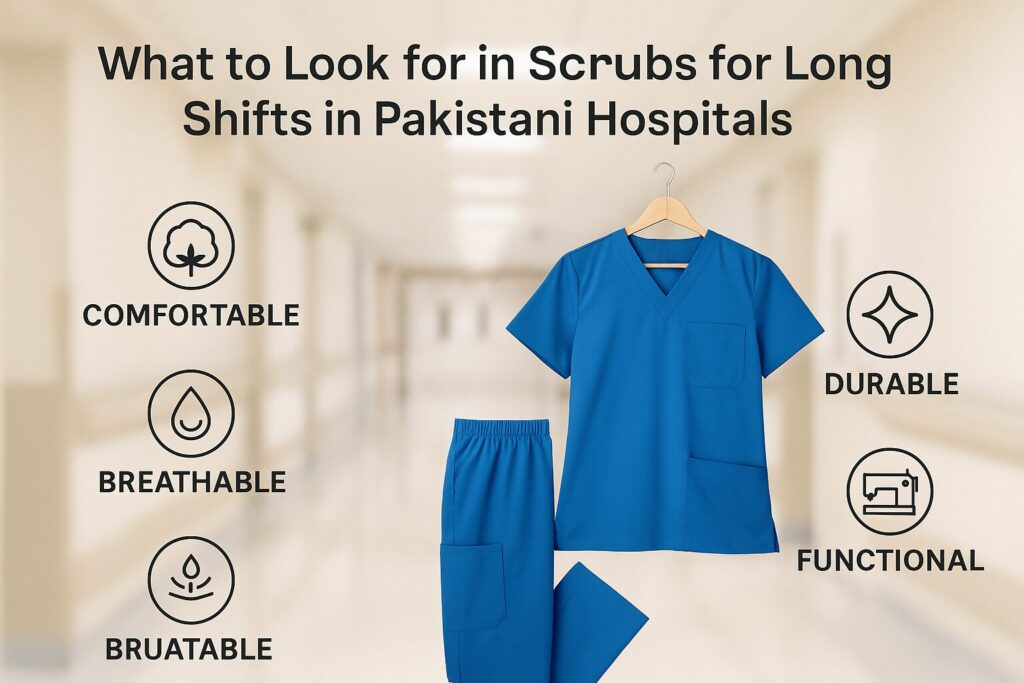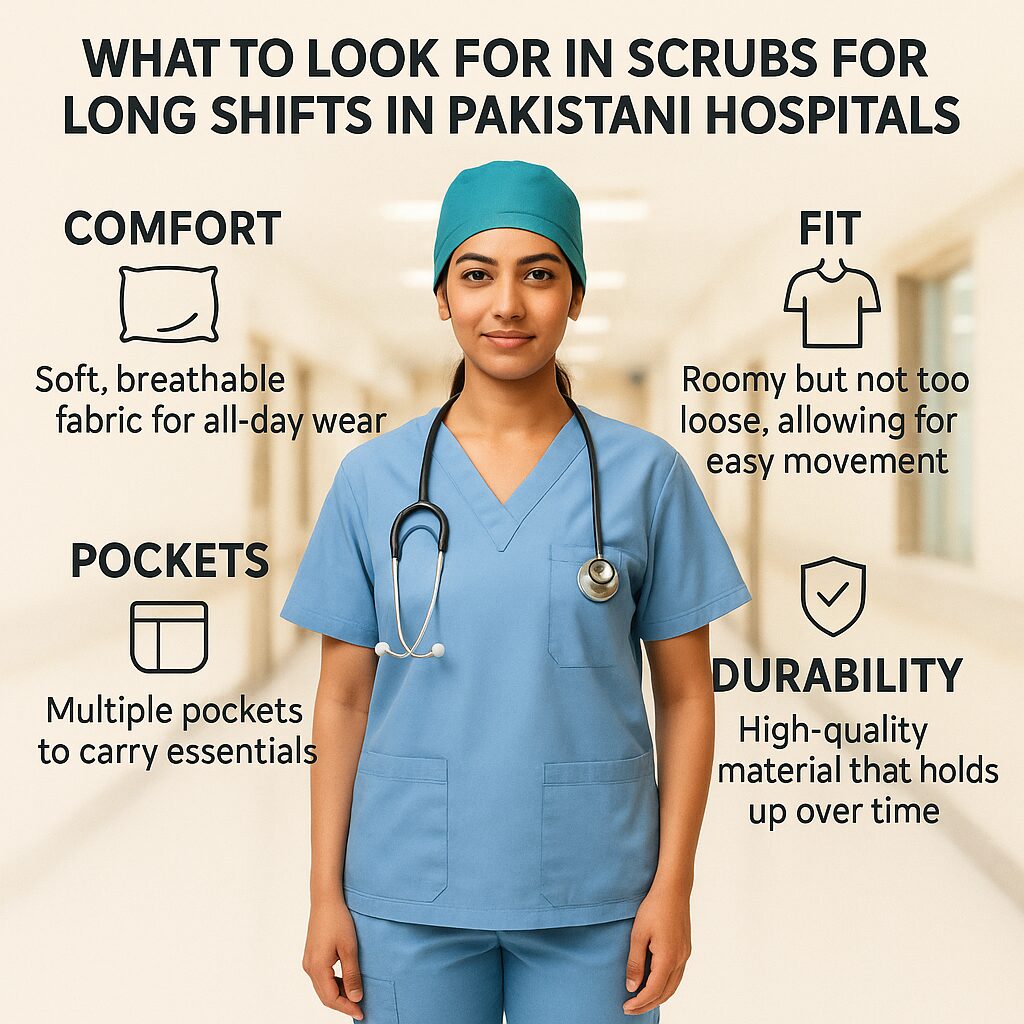
What to Look for in Scrubs for Long Shifts in Pakistani Hospitals
What to Look for in Scrubs for Long Shifts in Pakistani Hospitals
Working 10–12 hour shifts in a busy Pakistani hospital requires more than just medical skills — it demands gear that performs as hard as you do. When it comes to choosing scrubs, comfort, durability, and smart design are not just features — they’re essentials.
Let’s break down what doctors, nurses, and healthcare workers should look for in scrubs for long shifts in Pakistan’s healthcare environment.
Why Scrubs Matter During Long, Demanding Shifts?
“Comfortable scrubs can boost morale, reduce fatigue, and support performance during physically and emotionally taxing hospital hours.”
In Pakistan’s hospitals, where temperatures can fluctuate and workloads are high, the wrong scrubs can lead to discomfort, sweat retention, or even skin irritation.
Key Features to Look For in Long-Shift Scrubs
1. Breathable, Moisture-Wicking Fabric
Material matters. In hot and humid conditions common across Pakistan, opt for poly-cotton blends or anti-microbial performance fabrics that wick sweat and allow air circulation.
- Look for Medilap’s DryCool™ Tech Fabric
- Reduces the risk of heat rash or discomfort
- Prevents sweat marks during extended rounds
2. Stretch and Flexibility
Whether you’re bending, lifting patients, or rushing through corridors, your scrubs should move with your body, not against it.
- Choose 2-way or 4-way stretch fabrics
- Ensure a flexible waistband (especially for pants)
- Reinforced seams improve durability over time
3. Functional Pockets and Tool Access
Doctors and nurses often carry items such as pens, scissors, tape, notepads, and pulse oximeters. Long shifts don’t allow for wasted time searching for essentials.
- Go for multi-pocket tops and cargo-style scrub pants
- Deep, reinforced pockets prevent sagging
- Hidden compartments for valuables
4. Skin-Friendly Finishing
Skin irritation is common among individuals who work long hours in scrubs with low-quality dyes or harsh stitching.
- Look for tag-free labels
- Flatlock or double-stitched seams reduce friction
- Hypoallergenic fabric finishes are a plus
5. Professional, Modern Design
Even on a 12-hour shift, you should feel confident in your appearance. Stylish cuts and modern fits elevate morale.
- V-neck tops with tailored fits
- Jogger-style scrub pants
- Colors that reflect professionalism (e.g., navy, charcoal, surgical green)
Quick Feature Checklist (Pakistani Hospital Shifts)
| Feature | Why It Matters |
|---|---|
| Breathable Fabric | Keeps you cool in Karachi’s heat or poorly ventilated wards |
| Stretch Fit | Ensures comfort while moving, bending, or standing for hours |
| Anti-Microbial Coating | Protects against sweat buildup and hospital-acquired bacteria |
| Functional Pockets | Keeps tools accessible during emergencies or high-stress moments |
| Skin-Friendly Design | Prevents itching or discomfort during prolonged wear |
| Smart Fit & Appearance | Supports morale and maintains a professional look |

Why Choose Medilap Scrubs for Pakistan’s Healthcare Heroes?
- Specifically made for Pakistani climate and hospital routines
- Tailored to suit male and female healthcare professionals
- Local sizing + easy exchange
- Trusted by top medical institutes across Pakistan
Final Verdict
When buying scrubs for long hospital shifts in Pakistan, don’t settle for basic. Choose garments that deliver comfort, utility, and confidence throughout your day. Medilap Scrubs are designed for exactly that — explore our collection and gear up for your next shift in style and performance.
FAQs
What fabric is best for long shifts in Pakistani hospitals?
Moisture-wicking poly-cotton or performance fabric is ideal for heat and humidity.
How many pockets should a good scrub set have?
At least 4–6 functional pockets — ideally with reinforced stitching.
Can I get antimicrobial scrubs in Pakistan?
Yes, Medilap offers antimicrobial-coated scrubs designed for local conditions.
Do Medilap scrubs come in local sizes?
Yes. They’re tailored for Pakistani body frames and offer easy exchanges.
Are jogger scrubs appropriate for hospitals?
Yes, especially modern hospitals that accept smart, stretchable designs with functionality.
